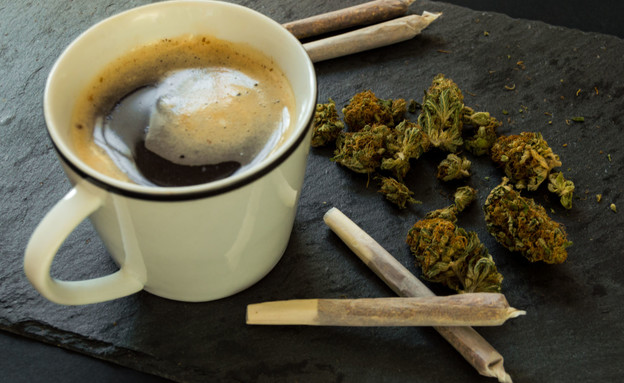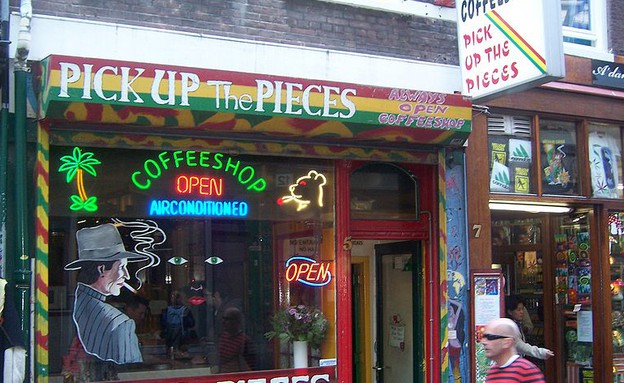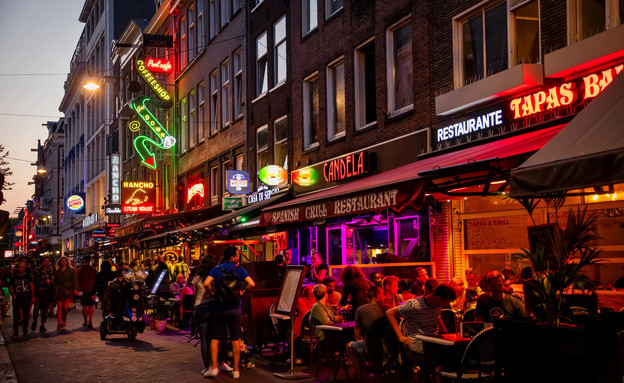Amsterdam is known to all of us as the cannabis capital of Europe. There are many good reasons to visit the beautiful capital of the Netherlands, but for many people, one of the main reasons is the liberal cannabis culture that takes place there. But what is the background to the culture of thinking? How did Amsterdam become a city that welcomes cannabis tourism and attracts people from all over the world to its famous cafes (the “Coffee Shops”)?
Some history
Amsterdam you have always been known for the liberal atmosphere and the salary that prevails in it. As early as the 16th, 17th and 18th centuries, in which Europe was extremely conservative, Amsterdam developed differently. The Netherlands was the first country to define in its laws the non-discrimination of citizens according to their religion, an area that had a state that had a special tolerance for foreigners and encouraged the employment of ethnic and religious minorities. The liberal atmosphere encouraged an extensive cultural development, a special thing between two in art and what more immigrants from around the world to engage their home to the capital of the flat country.
Also in the Jewish aspect, I was the Netherlands an island of tolerance in a sea of anti-Semitism which was increasingly proud of Europe. Jews from across the continent found refuge in the Netherlands and many of them, with trade ties and educational skills, integrated well into the developing economy of Amsterdam. Instead of rejecting foreigners, Amsterdam adopted them. Instead of searching from the different, Amsterdam learned the approximate. Thus, and with the help of the port that resides in the city, 17th century Amsterdam became one of the cities that continued the Union.
And what about cannabis?
When it comes to more information on cannabis, the Netherlands of many years ago I could not be different from most countries in the world. Anti-drug legislation appeared in the early 20th century and included a long list of substances that were defined as drugs, cannabis together. In 1928, legislation was tightened and the ban on growing the plant, selling it and exporting it to the Netherlands was enforced. But in Dutch society you were saturated with rebellion and striving for freedom of expression – in creation, in other arts in sports. Cannabis has become an integral part of other culture, and laws of one kind or another have not been complied with by the workers and others used in it.
The moment of turning
In education to any other country in the world, the Dutch government’s show in 1976 was shitty and ahead of its time (to be honest, maybe he’s the only one who got the time and all the others). For the first time since 1911, the year in which edible drug users were banned, the Dutch government announced the division of banned drugs into two different categories we know well: hard drugs and soft drugs. The distribution was made according to the level of risk caused to the person using the drug. Cannabis, being virtually risk-free, has been defined as a mild drug. When I was involved and accepted, cannabis was already very common on the streets of the Netherlands. The governor realized that I could not eradicate the phenomenon, and also saw that it did not cause any harm. In 1980, it was finally decided that the persecution of citizens and their punishment of soft drugs would cease. The material is not yet legal, can, but I just got the non-incrimination policy in effect.

The Coffee Shops
The coffee shops-free-translated cafes have become the unmixed symbol of the cannabis culture in Amsterdam. They can not buy cannabis safely, and also sit and help in a pleasant, relaxed and free atmosphere. The first Coffee Shop on Amsterdam soil as early as 1967, even before the non-incrimination applied. Like him, a few others emerged, who got entangled here and there with the workers’ system, but everything changed after 1980. From that year on, pops up across the second space and more cafes, the established Hapoel Institute and a place to rest for other workday places (similar to pub culture elsewhere) . . Otherwise, the coffee shops have become a coveted tourist find for cannabis lovers from all over the world.
The Dutch government has seen how cannabis consumption – illegal – is no longer just part of local culture, but a real symbol of Dutch localism and a tourist attraction for everything. I, and given the red economies found in inbound tourism, the center decided to regulate and institutionalize the issue of coffee shops, and in 1996 issued a series of laws and restrictions to increase control and supervision of their operation: In which the term “coffee shop” is synonymous with a convenient place to purchase marijuana). It was further stipulated that any sale of a hard drug would be strictly prohibited, and that entry to these places would be for those aged 18 and over.

Amsterdam is still one of the liberal liberal places. The beautiful city is saturated not only with bicycles and small bridges, but also with a huge variety of art on a variety of issues, but that shows great tolerance and a lot of self-expression, sexuality, and of course – also cannabis. In fact, the rules can make coffee shops action similar to pubs. You can buy, you can smoke, you must not disturb order and you must not disturb the neighbors. Come, have fun, behave nicely and get proper treatment back.
And what about the future?
Information that cannabis is still illegal in the Netherlands, the state does not monitor the places that get cannabis to the coffee shops. That is, there is non-discrimination on cannabis consumption, but it is still a criminal offense, and the issue is under the control of a gray market and the criminal world. The Dutch government is definitely giving your opinion on the issue these days, and is considering a pilot of legal cannabis production – which does not serve medical purposes – and its sale in selected coffee shops, which will be defined as suitable according to other criteria and will cooperate with the company. I thought about the personal and long for complete legalization of the plant.

